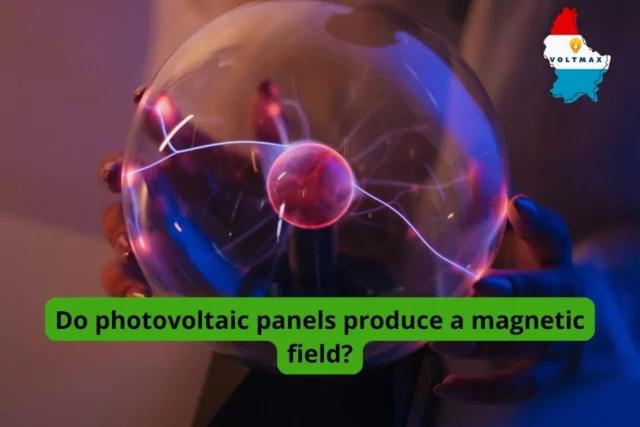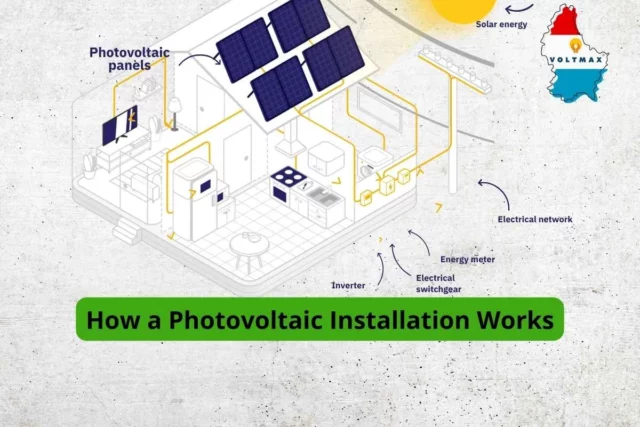
Table des matières
TogglePhotovoltaïque en hiver : les panneaux solaires fonctionnent-ils bien en hiver ?
Alors que les températures baissent, de nombreux propriétaires et chefs d’entreprise se demandent si investir dans le photovoltaïque C'est toujours une bonne idée. On pense souvent à tort que les panneaux solaires cessent de fonctionner efficacement en hiver, mais la réalité est tout autre. Les systèmes photovoltaïques continuent de produire de l'énergie solaire même pendant les mois les plus froids, ce qui en fait une solution énergétique fiable et écologique toute l'année.
Dans cet article, nous expliquerons comment les panneaux solaires se comportent en hiver, comment la neige affecte le photovoltaïque et pourquoi investir dans un système photovoltaïque reste bénéfique quelle que soit la saison.
Comment fonctionne le photovoltaïque par temps froid
Les panneaux solaires fonctionnent-ils à basse température ?
L'un des mythes les plus répandus concernant le photovoltaïque est que les basses températures réduisent son efficacité. En réalité, les panneaux solaires sont souvent plus performants par temps frais. La technologie photovoltaïque convertit la lumière du soleil en électricité, et non en chaleur. Lorsque les panneaux solaires fonctionnent à basse température, ils sont plus efficaces, ce qui permet une production d'énergie accrue par rapport aux journées d'été extrêmement chaudes.
L'impact de la neige sur les panneaux solaires
De nombreuses personnes craignent que la neige recouvrant leurs panneaux solaires n'empêche leur production d'énergie. Si l'accumulation de neige peut réduire temporairement l'efficacité, des facteurs clés permettent de minimiser cet impact :
- Installation inclinée – La plupart des panneaux photovoltaïques sont installés en angle, ce qui permet à la neige de glisser naturellement.
- Effet autonettoyant – Dès que le soleil brille, la neige commence à fondre et glisse, dégageant la surface.
- Avantage réfléchissant – La neige au sol agit comme un réflecteur naturel, faisant rebondir davantage de lumière solaire sur les panneaux et augmentant la production d’énergie.
Les avantages du photovoltaïque en hiver
Même si les journées d'hiver raccourcissent, les panneaux solaires continuent de produire de l'énergie solaire, réduisant ainsi la dépendance au réseau électrique. Parmi les principaux avantages, on peut citer :
- Des factures d'électricité moins élevées – Même en hiver, le photovoltaïque permet de réduire les coûts énergétiques.
- Indépendance énergétique accrue – Les panneaux solaires génèrent de l’électricité gratuite, rendant votre maison ou votre entreprise moins dépendante des fournisseurs externes.
- Énergie écologique – L’énergie solaire réduit la dépendance aux combustibles fossiles, contribuant ainsi à un environnement plus propre.
Entretien hivernal des panneaux solaires
Pour garantir des performances optimales pendant l'hiver, un entretien régulier est essentiel :
- Surveiller l'accumulation de neige – Si l’accumulation de neige est importante, retirez-la en toute sécurité à l’aide d’une brosse douce.
- Vérifier la sortie du panneau – Surveillez la production d’énergie de votre système photovoltaïque via une application ou un logiciel de surveillance du système.
- Gardez les panneaux dégagés – Assurez-vous que les arbres ou autres obstacles ne bloquent pas la lumière du soleil, en particulier avec l’angle du soleil plus faible en hiver.
Investir dans le photovoltaïque : est-ce rentable en hiver ?
Oui ! Le photovoltaïque est un investissement à long terme qui fonctionne efficacement toute l'année. Voici quelques raisons clés d'investir dans des panneaux solaires :
Utilisation durable de l'énergie – Réduire votre empreinte carbone est plus important que jamais, et le photovoltaïque contribue à atteindre cet objectif.
Production d'énergie toute l'année – Même en hiver, le photovoltaïque produit une électricité importante.
Augmentation de la valeur de la propriété – Les maisons et les entreprises équipées de systèmes d’énergie solaire sont plus attrayantes pour les acheteurs.

Conclusion : Le photovoltaïque en hiver – une solution fiable et écologique
Le photovoltaïque reste une solution énergétique performante, même en hiver. Malgré des journées plus courtes et des chutes de neige occasionnelles, les panneaux solaires continuent de produire efficacement de l'énergie solaire. Avec une installation adéquate et un entretien minimal, le photovoltaïque offre des avantages financiers et environnementaux à long terme.
Si vous envisagez d’installer un système photovoltaïque ou si vous avez des questions sur les panneaux solaires en hiver, contactez nos installateurs photovoltaïques experts. Nous sommes là pour vous aider à passer à une énergie propre, renouvelable et rentable, toute l’année !
Appel: +352 661 444 831







